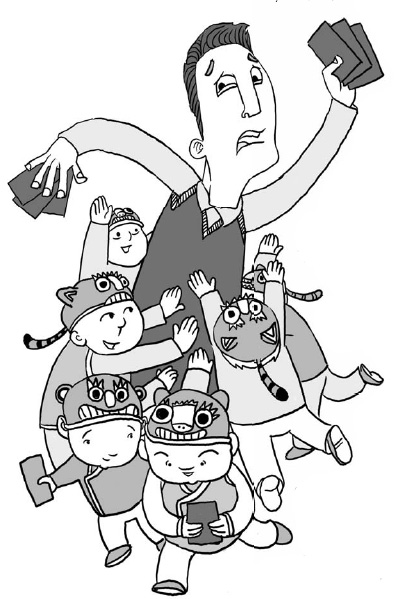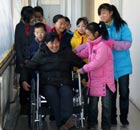Focus
Time for traditional give and take
By Yang Wanli (China Daily)
Updated: 2010-03-04 10:44
 |
Large Medium Small |
People in Beijing find mixed blessings in the tradition of giving red envelopes during Spring Festival.
After enjoying seven happy days with family and friends during Spring Festival, many young people returned to work to share their "pain", and complain that red envelopes have became an unbearable burden.

For Zhou Wan, a 28-year-old teacher who has worked in Beijing for five years, going back to her hometown in Guangdong during the Chinese Lunar New Year was a heavy drain on her savings. In the first three days of the holiday alone, she had handed out all her year-end bonus as hong bao, or gift money, to the children of relatives and friends.
It is a Chinese tradition that young and middle-aged people should give money to children and elders as a blessing and a token of respect.
"Giving money to relatives as a good wish gesture in my first working year was not bad, but it is painful to do the same thing this year. It seems to be an endless burden for the future," Zhou said.
Zhou revealed that she had given 4,000 yuan ($586) in red envelopes and spent 1,000 yuan buying gifts. "But no one can escape from tradition," she said.
China's biggest Internet portal, sina.com, recently did a survey of more than 1,197 Internet users about people's spending during the Year of Tiger Spring Festival. About 50 percent of those questioned spent 5,000 to 10,000 yuan during the holiday. More than 40 percent gave out red envelopes worth 1,000 to 5,000 yuan. And more than 34 percent chose to buy gifts for relatives. The money was mainly from their year-end bonus. For most young people born in 1980s, the money they spent during the seven-day holiday was likely to be as much as one-month's salary.

Cheng Xin has only recently graduated and she has worked in Beijing as a consultant for just six months. She agreed that red envelopes seem to be a burden not just for this year but for the future as well.
As a new bride, Cheng said she was fortunate, as the red envelopes she received at her wedding saved her lots of money during the Lunar New Year.
"But I am worried about next year. I will surely 'lose' lots of money. In my hometown, red envelopes not only represent blessings, but they also show your social status and identity," Cheng said.
"A small envelope will make you lose face. That's why my cousins didn't even come back for the Spring Festival," she said.
Her hometown is Wenzhou, a city with high average incomes in the coastal province of Zhejiang. Cheng said some families in Wenzhou would give 10,000 yuan in an envelope and she worried that it would start a trend of giving bigger red envelopes.
While young people complain about the "red burden", red envelopes have become such a heavy burden for migrant workers in the capital, that some choose to avoid returning home for Spring Festival.
Zhang Chunlai, 43 years old, from Henan Province, has made a living by handling materials in a construction site in Tongzhou district in Beijing for two years. He said he didn't go back to his hometown this year, due to the burden of giving relatives hong bao.
| ||||
However, although some people complain about the pressure of giving red envelopes during the Spring Festival, there are those that are happy that the tradition still continues.
"I have received too much money from my family and relatives over the years. In the past 23 years, they have given me a lot during the Spring Festival. It felt good to be a giver this time," 24-year-old Li Cun said.
This year he used his entire year-end bonus for red envelopes and said his parents gave part of them back.
"They were happy to know I had became a real man who knew his responsibilities to the family," Li said. "In China, giving red envelops to relatives, especially our parents, is like a statement showing your support and love to your family. They don't care how much money you give, but how much you love them."
Wang Shuixiong, an associate professor at Renmin University, said, "in ancient China, people sent food as gifts to relatives and friends as blessings for the holiday. This tradition of giving should be taken only as blessings even in modern times."
It makes no difference whether it is money or food or other gifts, "we should keep the right attitude to giving," he said.
Wang believes it is unnecessary to compare how much money each person gave. "It's better to focus on the essential meaning behind the red envelopes."

My viewpoint














